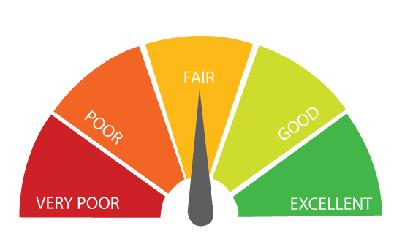There has been a lot of media around the findings of the recent royal commission and how the banks have now made it significantly harder to apply for a loan. Another change, that was mandated prior to the royal commission, is set to place a much greater importance on keeping your credit file squeaky clean.
Most people who apply for a loan, from a mortgage to a credit card, accept that the lender will perform a credit check on them. Whilst these credit checks have always played a significant role in whether the application was accepted or declined the data that was historically available was limited to three items:
- The date of the last credit enquiry for the applicant.
- The name of the credit provider that made the inquiry, e.g. ANZ bank
- If there were any credit defaults or bankruptcy registered against the applicant. A credit default includes a repayment in arrears for a period of 60 days or more.
The lender would then rely on the applicant to include the balances and structure of any outstanding loans in their application and back them up with the relevant statements.
On 2 November 2017 the government announced it would legislate for a mandatory Comprehensive Credit Reporting (CCR) regime to come into effect by 1 July 2018. So by 1 October 2018 the four major banks were required to report that 50% of their credit data, including home loans, credit cards, car leases, etc. are shared with a credit bureau and made available to other industry participants. By 1 October 2019 this figure will grow to include 100% of all credit data.
Whilst the government’s mandate only applies to the four major banks, to gain access to the data a lender must also be a participant so it’s expected the smaller lenders will follow.
What does this mean?
Under the new reporting regime, the number of data points contained in a credit file would be significantly increased. In addition to the three listed above, the information available to lenders would include far more detail around the balance and limit of any loans you have outstanding or closed, the type and structure of those loans and their month by month payment history for the previous two years.
All these factors will then be considered to produce a credit score for the applicant of between 0 and 1000. Clearly this will provide lenders access to a lot more data, enabling them to better assess a borrower’s true credit position and hence their ability to repay a loan.
How will this affect me when applying for a loan?
As more Comprehensive Credit Reporting (CCR) information becomes available, it should drive competition and result in lenders offering a better deal based on your unique credit circumstances. In short you could be rewarded for a good credit score with a lower interest rate or punished for a bad one. The race will be on to best utilize this level of data and introduces the possibility of nimble fintech start-ups to enter the marketplace.
It may also result in a reduction in the documents you need to provide the lender with your application. If a lender can view your current balances and repayment history, then there may not be a need to provide this information in the form of paper statements.
Whichever way you look at it, the change will place far more importance on maintaining a clean credit file and will ultimately result in a more competitive risk adjusted lending market.





